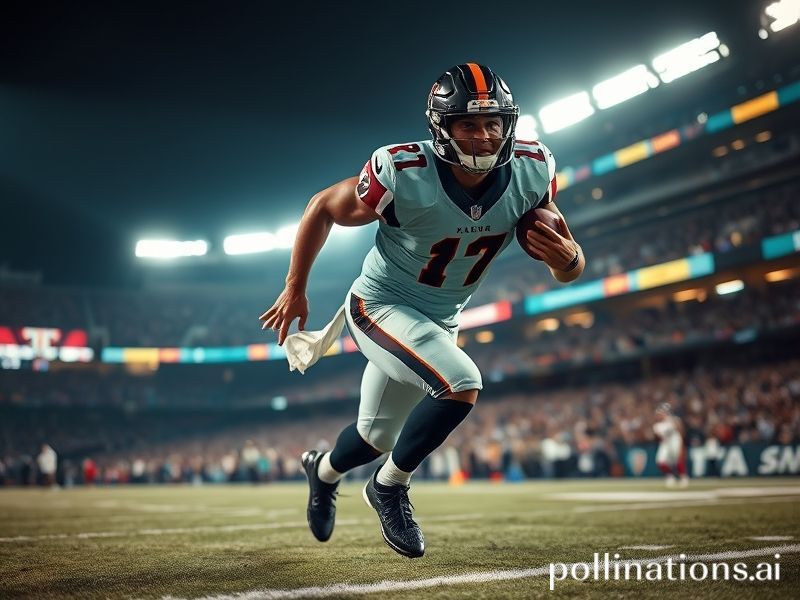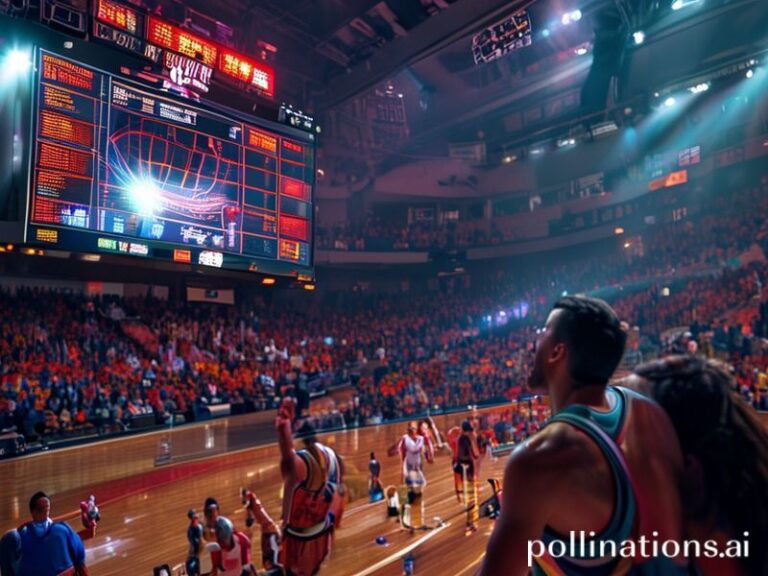Marcus Mariota: The Polynesian Passer as Global Metaphor for American Decline
Marcus Mariota, erstwhile savior of the Tennessee Titans and current itinerant quarterback, is the rare American football export who can make the rest of the planet shrug in unison. While the NFL busies itself inflating viewership numbers in London pubs and Munich beer halls, Mariota has become a walking metaphor for globalization’s limits: a Samoan-Hawaiian, Oregon-educated, Heisman-brandished athlete now relegated to clipboard duty in Washington—where the only international incident he risks is spilling coffee on a lobbyist’s briefcase.
From a global vantage point, Mariota’s career arc is less about spiraling leather and more about the creeping realization that even the shiniest U.S. cultural products arrive pre-dented. Europe, still hungover from the latest World Cup, glances at the NFL’s European “home games” and sees the same sanitized pageantry they already get from Disney on Ice. Meanwhile, Asia—where the NFL once dreamed of 1.4 billion jersey sales—has quietly pivoted to esports, preferring digital violence that doesn’t require three commercial breaks to advance ten yards. Mariota, polite to a fault, is the ideal ambassador for this moment: photogenic, humble, and safely non-threatening, like a tourism ad that promises adventure but delivers a guided bus tour of duty-free shops.
In the geopolitical sense, Mariota’s journeyman status mirrors the fraying of America’s own unipolar moment. Once upon a 2015 season, he was the sleek, dual-threat prototype who would revolutionize the league; now he’s backing up Sam Howell, a quarterback whose greatest international exposure to date is a few confused Google searches in Tokyo. The irony, of course, is that the NFL’s soft-power playbook—plant a flag, sell merch, dub the whole thing “expansion”—works only when the product still looks invincible. Mariota’s descent into rotational purgatory is a handy reminder that empires, like ACLs, tear without warning.
Yet the man himself remains stubbornly likable, a trait that transcends borders the way fast-food chains adapt menus to local palates. In Samoa, elders speak of him with the same restrained pride they reserve for sons who send remittances but forget birthdays. In Japan—where his ancestry earns polite nods at best—he’s the answer to a trivia question wedged between sumo scandals and bullet-train delays. And in the United States, he’s the guy who makes fans nostalgic for an era when quarterbacks pretended humility instead of monetizing it on TikTok.
Financially, Mariota’s contract is a rounding error in the Fed’s weekly balance-sheet bonfire, but symbolically it’s a master class in late-capitalist absurdity. He earns more to hold a tablet than most economies allocate to rural electrification, a fact that economists in Nairobi or Jakarta would find hilarious if they weren’t busy calculating the price of diesel. The NFL’s international revenue-sharing scheme—essentially a polite shakedown of broadcasters from Düsseldorf to Dubai—relies on stars whose wattage never dims. Mariota’s flickering bulb therefore poses an existential threat: if he can’t hold a starting job, what hope is there for the league’s grand vision of Delhi Cowboys jerseys?
Ultimately, Mariota matters because he doesn’t matter, a Zen koan in shoulder pads. He is the human embodiment of our collective shrug at institutions that insist on their own indispensability. While pundits debate read-options and cap hits, the rest of the planet keeps spinning—supply chains kink, glaciers calve, and some kid in Lagos streams Champions League highlights on a cracked phone screen. Mariota will probably ride the bench this Sunday, flash that choirboy grin, and collect another check large enough to fund a small island nation’s disaster-relief budget. The world, unimpressed, will change the channel.
And that, dear reader, is globalization in 2024: a polite, well-compensated afterthought on the sidelines of history, waiting for a coach’s whistle that may never come.







